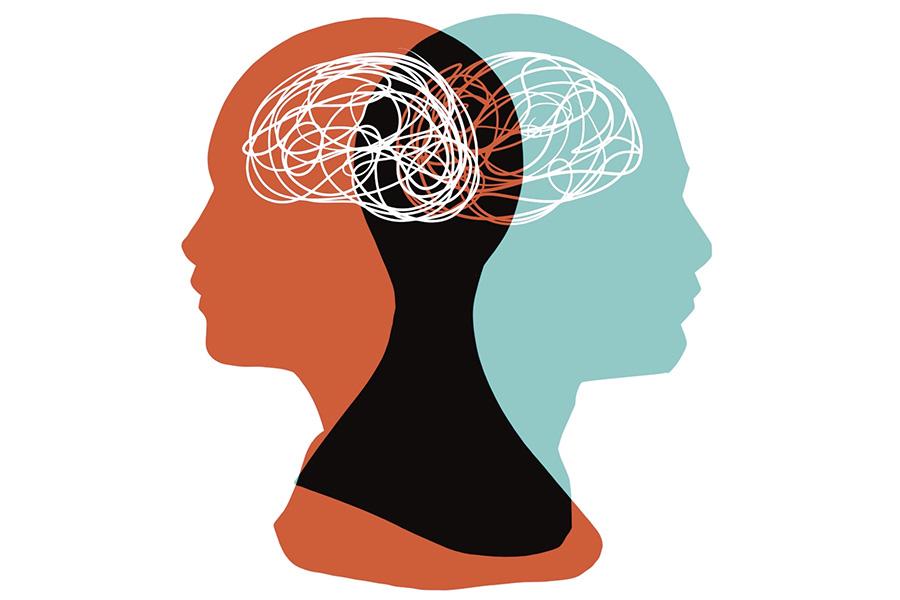Hey there, friend! Let's dive straight into the heart of something that matters more than ever in today's world: mental health. Yeah, you heard me right—mental health. It's not just a buzzword anymore; it's a crucial part of our lives. We’re living in a fast-paced, high-stress society where mental health isn’t just "nice to have" but a necessity for survival. So, buckle up because we’re about to unravel why it’s so important and how it impacts every aspect of our lives.
Take a moment to think about it—how many times have you brushed off feelings of stress, anxiety, or burnout as "just part of life"? Too often, right? The truth is, mental health isn’t something you can ignore and hope it goes away. It affects everything from your relationships to your productivity, and even your physical well-being. It’s time we stop pretending it’s not a big deal and start treating it like the cornerstone of a healthy life.
This article isn’t just about mental health—it’s about understanding why it matters, how it affects us, and what we can do to prioritize it in our chaotic world. Think of it as a guide, a friend, and a wake-up call all rolled into one. Ready? Let’s go!
Here’s a quick roadmap of what we’ll cover:
- What is Mental Health?
- Why Mental Health Matters in Today's Society
- Common Mental Health Issues
- The Stigma Around Mental Health
- Mental Health and Work-Life Balance
- Mental Health in Relationships
- Resources for Mental Health Support
- Practicing Self-Care for Mental Health
- The Role of Technology in Mental Health
- Conclusion: Taking Action for Your Mental Health
What is Mental Health?
Alright, let’s break it down. Mental health isn’t just about the absence of mental illness—it’s about overall well-being. It’s how you think, feel, and act as you face life’s ups and downs. It’s about resilience, emotional balance, and the ability to cope with stress. Simply put, mental health is the foundation of how you experience the world around you.
In today’s society, mental health often gets overlooked because, let’s face it, it’s invisible. Unlike a broken arm or a fever, mental health struggles aren’t always easy to spot. But that doesn’t mean they’re any less real or impactful. Mental health affects how we handle stress, relate to others, and make decisions. It’s not just about feeling "happy" all the time; it’s about functioning well and thriving in life.
Here’s the kicker: mental health isn’t static. It’s dynamic, meaning it can change over time based on circumstances, stress levels, and life events. So, whether you’re having a great day or feeling like the world is caving in, your mental health is always there, influencing how you perceive and interact with the world.
Why Mental Health Matters in Today's Society
Let’s talk about why mental health is such a big deal in 2023. The world has changed drastically in the past few decades, and with it, so have our mental health challenges. We live in a hyper-connected, high-pressure society where the lines between work, personal life, and rest are increasingly blurred. This constant hustle takes a toll on our minds, and ignoring it can lead to serious consequences.
Research shows that mental health issues are on the rise globally. According to the World Health Organization (WHO), nearly 1 billion people worldwide are living with a mental disorder. That’s a staggering number, and it’s growing. From anxiety and depression to burnout and PTSD, the challenges are real, and they’re affecting people of all ages, backgrounds, and walks of life.
But here’s the thing: when we prioritize mental health, we see positive ripple effects in every area of life. Better mental health leads to improved relationships, increased productivity, and even better physical health. It’s not just about feeling good—it’s about functioning well and living a fulfilling life. In a world that demands so much from us, mental health is the key to keeping it all together.
Mental Health Statistics to Wake You Up
Let’s get real for a second. Numbers don’t lie, and the stats around mental health are alarming. Here are a few to make you sit up and take notice:
- One in four people will experience a mental health issue in any given year.
- Depression is the leading cause of disability worldwide.
- 75% of mental health conditions develop before the age of 24.
- Only 43% of adults with a mental health condition receive treatment.
These numbers aren’t just stats—they’re people. They’re your friends, family, coworkers, and maybe even you. It’s time we stop pretending mental health isn’t a priority and start taking action.
Common Mental Health Issues
Let’s talk about the big players in the mental health arena. There are several common mental health conditions that people face, and it’s important to understand what they are and how they manifest. Here are some of the most prevalent ones:
Anxiety Disorders
Anxiety disorders are the most common mental health issue, affecting millions of people worldwide. They can range from generalized anxiety disorder (GAD) to panic attacks and social anxiety. Symptoms include excessive worry, restlessness, and physical symptoms like heart palpitations and sweating.
Depression
Depression is another major player in the mental health space. It’s more than just feeling sad—it’s a persistent feeling of hopelessness, loss of interest, and fatigue. Depression can severely impact daily life and, if left untreated, can lead to serious consequences.
Bipolar Disorder
Bipolar disorder is characterized by extreme mood swings, from manic highs to depressive lows. It can be challenging to manage without proper treatment, but with the right support, people with bipolar disorder can lead fulfilling lives.
These are just a few examples, but the list goes on. From PTSD to eating disorders, the mental health landscape is complex and varied. The good news is that with awareness and support, these conditions can be managed effectively.
The Stigma Around Mental Health
Now, let’s tackle the elephant in the room: stigma. Despite all the progress we’ve made in understanding mental health, stigma still exists, and it’s a major barrier to getting help. Many people feel ashamed or embarrassed about their mental health struggles, fearing judgment or discrimination.
The truth is, mental health issues are nothing to be ashamed of. They’re not a sign of weakness—they’re a sign of being human. Everyone faces challenges, and mental health is just one aspect of that. The more we talk about it openly and honestly, the more we can break down the stigma and create a supportive environment for everyone.
Here are a few ways we can combat stigma:
- Encourage open conversations about mental health.
- Challenge stereotypes and misconceptions.
- Support those who are struggling without judgment.
Remember, you’re not alone, and seeking help is a sign of strength, not weakness.
Mental Health and Work-Life Balance
Let’s talk about the elephant in the office: work-life balance. In today’s fast-paced world, the pressure to succeed professionally can take a toll on mental health. Long hours, tight deadlines, and unrealistic expectations can lead to burnout, anxiety, and stress.
But here’s the thing: work-life balance isn’t just a buzzword—it’s essential for maintaining good mental health. When you prioritize your well-being, you’re not just being selfish—you’re being smart. Taking breaks, setting boundaries, and practicing self-care can make a world of difference in how you handle stress and perform at work.
Here are a few tips for maintaining work-life balance:
- Set clear boundaries between work and personal time.
- Take regular breaks throughout the day.
- Learn to say "no" when necessary.
Your mental health matters more than any job, and it’s okay to prioritize it.
Mental Health in Relationships
Relationships are another area where mental health plays a crucial role. Whether it’s romantic relationships, friendships, or family dynamics, mental health can impact how we connect with others. When one person is struggling, it can affect the entire relationship dynamic.
The key is communication. Talking openly about your feelings and needs can help build stronger, healthier relationships. It’s also important to support your loved ones without judgment and encourage them to seek help if needed.
Here are a few tips for maintaining healthy relationships:
- Practice active listening.
- Be patient and understanding.
- Encourage open communication.
Remember, relationships are a two-way street, and mental health affects both parties. By prioritizing it, you can create deeper, more meaningful connections.
Resources for Mental Health Support
Now, let’s talk about resources. If you’re struggling with mental health, know that help is available. From therapy to support groups, there are countless resources out there to help you on your journey to better mental health.
Here are a few options to consider:
- Therapy: Whether it’s in-person or online, therapy can be a game-changer for mental health.
- Support Groups: Connecting with others who understand what you’re going through can be incredibly healing.
- Hotlines: If you’re in crisis, there are hotlines available 24/7 to provide immediate support.
Remember, reaching out for help is a sign of strength, not weakness. You don’t have to face mental health challenges alone.
Practicing Self-Care for Mental Health
Self-care isn’t just about bubble baths and face masks (though those are great!). It’s about taking intentional steps to prioritize your mental health and well-being. Whether it’s practicing mindfulness, exercising regularly, or simply taking a break when you need it, self-care is essential for maintaining good mental health.
Here are a few self-care ideas to get you started:
- Meditate or practice deep breathing exercises.
- Engage in activities you enjoy, like reading or painting.
- Get regular exercise and prioritize sleep.
Self-care looks different for everyone, so find what works for you and make it a priority. Your mental health deserves it.
The Role of Technology in Mental Health
Technology has revolutionized the way we approach mental health. From apps that track your mood to online therapy sessions, there are countless tools available to help you manage your mental health. But with great power comes great responsibility—technology can also contribute to stress and anxiety if not used mindfully.
Here are a few ways technology can support mental health:
- Mental health apps like Headspace or Calm for mindfulness and meditation.
- Online therapy platforms like BetterHelp or Talkspace.
- Social media communities that provide support and connection.
Just remember to use technology in moderation and set boundaries to avoid burnout.
Conclusion: Taking Action for Your Mental Health
Alright, we’ve covered a lot, and I hope you’re feeling informed, inspired, and ready to take action for your mental health. Remember, mental health isn’t just about surviving—it’s about thriving. It’s about living a fulfilling, balanced life where you feel supported, connected, and at peace with yourself.
Here’s a quick recap of what we’ve learned:
- Mental health is crucial for overall well-being and affects every area of life.
- Common mental health issues like anxiety and depression are treatable with the right support.


